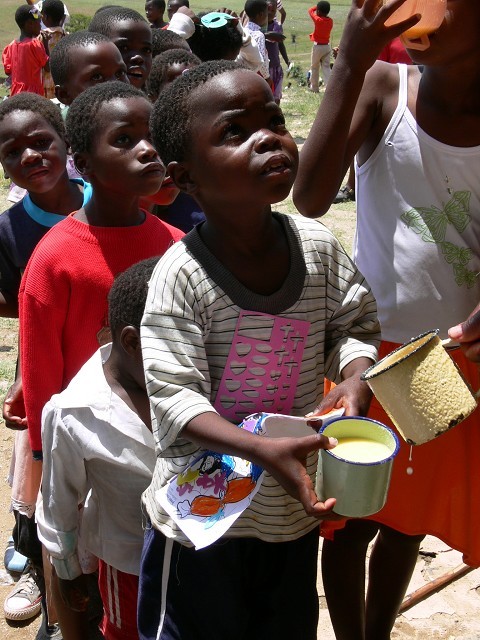 Swaziland is home to 130,000 orphans, a number that, incredibly, is growing approximately 10% a year. AIDS is killing the adults, leaving behind the children. The average age of death is 30.
Swaziland is home to 130,000 orphans, a number that, incredibly, is growing approximately 10% a year. AIDS is killing the adults, leaving behind the children. The average age of death is 30.
Swaziland stresses cultural tradition continually. Culture allows for multiple marital partners and several children. Tradition dictates that children are cared for by the community. If a parent dies then the extended family is supposed to take them in. The problem now is that, in many cases, all the extended family members are dead.
The traditional caregiver in a family is called a “go-go” or a grandmother. In a sense she is the orphan director, trying to cope with a continually growing number of orphans. It is not uncommon for a go-go to be responsible for over 30 children with no access to funds or food.
70% of the land in Swaziland is owned by the King. Land is parceled out to over 300 chiefs to care for and divide among the people. Chiefs are the traditional rulers in a these divided communities.
The rural areas are still very traditional. Many Swazi people still live on homesteads and these are passed down through the family. Even Swazi people who live in the towns or cities often still have ties to a homestead which they may visit on the holidays or weekends. Swaziland is called a “Christian” country in its own constitution, but the real religion that dominates is ancestral worship. The spirit of the dead is revered above the spirit of Christ.








Thanks for this well-written and informative article. Our daughter is headed for Swazi after Christmas, so it is nice to know what the culture will be like. Praise God for AIM…
“He that hath pity upon the poor lendeth unto the LORD; and that which he hath given will he pay him again.” Prov. 19:17